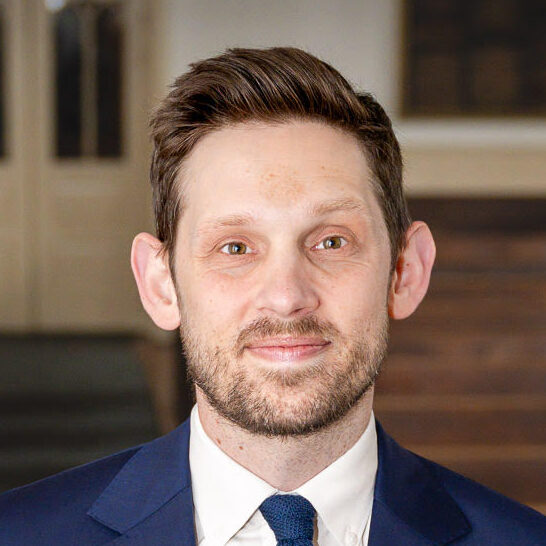11. Investigate
Figure things out for yourself. Spend more time with long articles. Subsidize investigative journalism by subscribing to print media. Realize that some of what you learn on the internet is there to harm you. Learn about sites that investigate propaganda campaigns (some of which come from abroad). Take responsibility for what you communicate with others.
-Timothy Snyder, On Tyranny
We Need to Pursue Truth: Construct a Diverse Media Diet
In being assigned the lesson “Investigate” to explore and unpack, the first Jewish teaching that came to mind was that far-overused yet perfectly succinct three-word phrase: Tzedek, tzedek tirdof / צֶ֥דֶק צֶ֖דֶק תִּרְדֹּ֑ף. “Justice, justice thou shalt pursue.” If any classic Jewish teaching evokes “investigate,” it is this notion of rodef, pursuit.
When it comes to understanding the world around us, swirling forces moving at rapid pace, it is not sufficient — especially in a world of algorithms and newsfeeds that seek to keep us engaged through the sugar highs we want, not the substance we need — to simply consume the news that comes our way. Rather we called upon to tirdof, to pursue, to seek out truth, to investigate truth.
We often assume it is only “them” who are duped; who get sucked into the vortex of Fox News or X or Russian bots, and if only “they” were more vigilant arbiters of truth, our democracy would resolve itself.
Not so. We all fall victim not only to misinformation, which is a world unto itself, but to what for a while was referred to as “epistemic closure.” This dry, probably misapplied phrase referred to the way in which we seek out information that confirms our worldview, that doesn’t allow in new information that would in any way upend our fundamental understandings of the world, or at least, of the political climate.
This was typified by the bevy of books popularized about Donald Trump after the 2016 election that sought to give liberals and progressives an understanding of the forces that could have led to the election of such an appalling figure (ironically, perhaps the most notable of which, Hillbilly Elegy, was written by his now running mate JD Vance). After the 2016 election. Those perspectives barely made it into the progressive political consciousness prior to his election in a manner that could have allowed them to be more centrally engaged, and that could have perhaps help to steer at least some voters away from electing this destructive person.
Furthermore, most of these tomes were written by the equivalent of cultural anthropologists — progressives themselves who sought to do the important but ultimately insufficient work of translating the conservative experience to a liberal voter, their perspectives inevitably filtered through that liberal lens.
In order to engage with all the arguments floating out there in the ether, it is important that we construct media diets that are diverse in perspective while still grounded in veracity.
The Interactive Media Bias Chart by Ad Fontes Media is an imperfect effort but a good starting point for a wide overview of where various media outlets — and specific shows/podcasts — fall along the political spectrum, as well as how reliable they are and much they skew “straight news” versus providing analysis and/or opinion. (There are roles for each, but it’s important to know which you’re digesting).
Even if you find yourself consuming news whose underlying predilections don’t align with your values, you will have a deeper understanding of the forces striving for power — not filtered through cultural translators but through your own listening and engagement — and therefore, over the course of the countless conversations that make up our democracy, you will be more equipped to meet people where they are.
Similarly, as referenced above, while it’s perfectly reasonable, and often helpful, to seek out our favorite pundits whose voices we trust and whose analysis we respect, it’s also important to take in a steady diet of fact-based reporting — facts we can interact with prior to their being filtered through the lens of someone whose conclusion might be different than what our own would have been had we given ourselves the space to use our own intuition, knowledge and instincts.
Yes, we should trust experts, people whose professions have led them to study and commit to the areas at issue. We can’t all be immunologists and climatologists and evolutionary biologists, and we oftentimes do need to outsource our judgment to people who have made areas relating to ours and our planet’s health central to their life’s work.
But we do also need to be sensitive to groupthink, sensitive to where the emperor may, in fact, not be wearing any clothes, brave enough to ask questions or offer perspectives in rooms filled with like-minded people with whom we may otherwise agree that differ from the prevailing consensus.
I like to listen to podcasts because the medium of dialogue — question and answer — can often shine a light on where an argument is strong and where it is weak. I particularly like when moderators interview two experts with differing perspectives. If you listen closely, you can often hear when a participant rebutted another’s point, and when they obfuscate and distract. The PBS NewsHour, while generally inhabiting a center-left to left piece of the political spectrum, nevertheless tends to do an excellent job with this.
Tzedek, Tzedek Tirdof — justice, justice, you shall pursue. The same, in the face of tyranny, could be said about truth: We have to pursue it, even if it sometimes takes us away from our familiar stomping grounds.







